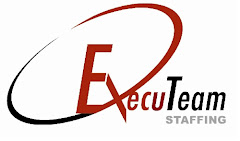
The entire interview process is designed to sift the average from the extraordinary and to select the candidate who will be the "right fit". To facilitate decision-making, hiring managers often leverage behavioral interviewing (an interview technique relying on past performance as an indicator of future success). Interview success is largely dependent on how the candidate delivers responses.
Consider the following tips:
Communicate effectively, focus on the beef
During many interview coaching sessions, I have observed that candidates often deliver closed-ended responses to interview questions. Brevity is certainly appreciable, but if the response fails to communicate the message effectively, it won’t do much good either.
When asked about clinical research skills, for example, many professionals would frame their responses along the following lines:
Weak Strategy:
"I have excellent clinical research skills."
Better:
"My superiors, including XYZ Pharma’s CEO, have often called me the ‘Prize of the Clinical Department.’ During my 12+ years’ in clinical research, I have provided my expertise to the world’s top three pharmaceutical companies. As clinical research director at XYZ, I not only directed the testing of eight multi-billion dollar, blockbuster molecules, but also spearheaded their approval process from Phase I of clinical studies all the way through market launch. My Ph.D. in pharmacology serves only to enhance my clinical knowledge."
Showcase past results, demonstrate potential value
Wherever possible, highlight results, not just duties. It is very important to demonstrate how you were driving results at past positions and how you can continue bringing value in your future role as well.
Weak Example:
"I consistently generated hundreds of thousands of dollars in revenues for XYZ Pharmaceutical Company."
Better:
"From a sales force of 900+ at XYZ Pharmaceutical Company, I was ranked in the Top Five. My performance was consistently at 140% to quota and I was instrumental in winning many sought-after deals. It was primarily my leadership that helped the inclusion of three of our company’s products into the formularies of major managed care organizations in our state. I have won 14 ‘top salesperson’ awards in the past seven years."
Translate benefits for the decision maker
Instead of allowing the hiring manager to draw conclusions about your candidacy, provide material that will do the job for them. In other words, it is not enough to say what you have to offer; the response must go a step further and explain how your qualifications will benefit the organization.
Weak Example:
"I am an experienced pharmacist."
Better:
"My eight years’ experience in working for nationally-recognized pharmacies, such as XYZ and ABC, have honed and developed my ability to fill prescriptions efficiently and accurately. My ability to fill over 300 prescriptions per day with 100% accuracy would save thousands of dollars for your organization as it will eliminate the need for having two pharmacists during an eight-hour shift. My patient orientation and communication skills helped build a loyal patient base for my past employers, and I am confident I can do the same for your company as well."
Understand your employer
Conduct thorough research about the employer, including its past, present, and future. This will not only help you prepare for the interview, but will also help you identify and address issues that would be unique to the specific employer. Employees, vendors, customers, Internet research, SEC filings -- there are a number of information sources you can leverage to facilitate your research.
Convey how you are the candidate for the job
Once you have understood the company’s needs, prepare a convincing strategy to position you for those needs. Consider the following example:
Lu was interviewing for a regulatory affairs manager position with a large pharmaceutical company. His research made him aware of some problems the company’s compliance division was facing in Asia. He leveraged this information to his advantage and at every meeting during the interview process, he used past examples and results to showcase his ability to resolve FDA issues in Asian markets. The strategy was a hit.
Anticipate and prepare responses to common interview questions
Prepare responses for common interview questions. I also ask my clients to prepare short, almost commercial-like messages and scripts positioning them for the role.
- Nimish Thakkar, Career Coach
From www.net-temps.com




No comments:
Post a Comment